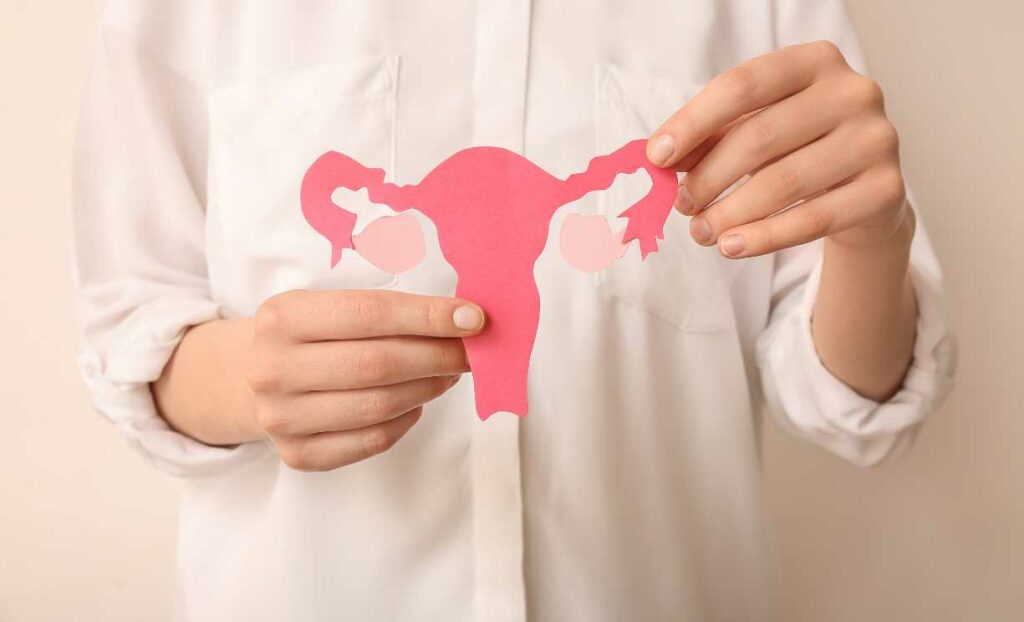Perimenopause, often referred to as the “menopausal transition,” is a significant phase in a woman’s life that precedes menopause. This transitional period, typically starting in the 40s, is marked by hormonal fluctuations and a range of symptoms as the body adjusts to the eventual cessation of menstruation. In this blog, we delve into the nuances of perimenopause symptoms, shedding light on what women may experience during this transformative time.
Contents
What Is Perimenopause?
Perimenopause is a natural phase in a woman’s life that precedes menopause. It typically starts in the 40s, although the timing can vary, and marks the transition from the reproductive years to the postmenopausal stage. During perimenopause, the body undergoes hormonal fluctuations as the ovaries gradually produce less estrogen. This hormonal shift leads to various changes, both physical and emotional. Irregular menstrual cycles are a common hallmark of perimenopause, with periods becoming irregular or unpredictable.
Women may also experience symptoms like hot flashes, night sweats, mood swings, and changes in sleep patterns. While perimenopause can bring challenges, understanding and managing these changes with the support of healthcare professionals and lifestyle adjustments can empower women to navigate this natural transition more smoothly.
Causes Of Perimenopause
Perimenopause is primarily caused by hormonal changes in a woman’s body as she approaches menopause. During this natural phase, usually starting in the 40s, the ovaries gradually produce less estrogen, a key reproductive hormone. Estrogen plays a vital role in regulating the menstrual cycle and maintaining reproductive health. As its levels fluctuate during perimenopause, women may experience various symptoms such as irregular menstrual cycles, hot flashes, and mood swings.
The diminishing levels of estrogen ultimately lead to the cessation of ovulation and menstruation, marking the transition into menopause. While this hormonal shift is a normal part of aging, the intensity and duration of perimenopausal symptoms can vary among individuals. Understanding these changes and seeking guidance from healthcare professionals can help women manage the challenges associated with perimenopause more effectively.
Symptoms Of Perimenopause
Perimenopause, the transitional phase leading to menopause, is characterized by a range of symptoms due to hormonal fluctuations. While experiences vary among individuals, common symptoms of perimenopause include:
- Irregular Menstrual Cycles: Perimenopause is characterized by changes in menstrual patterns. Cycles may become irregular, with periods varying in frequency. Some women may experience skipped periods, while others may have heavier or prolonged menstruation.
- Hot Flashes and Night Sweats: Fluctuating hormone levels can trigger sudden, intense heat sensations known as hot flashes. These can occur at any time and may be accompanied by night sweats, disrupting sleep and causing discomfort.
- Mood Swings and Emotional Changes: Hormonal shifts during perimenopause can influence mood. Women may experience mood swings, irritability, increased stress, or feelings of sadness. These emotional changes can impact daily life and relationships.
- Sleep Disturbances: Changes in hormone levels may contribute to sleep disturbances. Insomnia or difficulty staying asleep can become prevalent, affecting overall well-being.
- Vaginal Changes: Decreased estrogen levels can lead to changes in vaginal tissues. Some women may experience dryness, itching, or discomfort during intercourse. These changes can impact sexual health and comfort.
- Changes in Libido: Fluctuations in hormone levels may also influence sexual desire. Some women may notice changes in libido during perimenopause.
- Breast Tenderness: Hormonal fluctuations can cause breast tenderness or changes in breast tissue. Regular breast self-exams and mammograms remain crucial during this period.
- Urinary Changes: Changes in pelvic tissues may lead to urinary symptoms, including increased frequency or urgency. Pelvic floor exercises may help manage these changes.
- Weight Gain and Metabolism Shifts: Metabolism may slow down during perimenopause, contributing to weight gain, especially around the abdomen. Adopting a healthy lifestyle with regular exercise becomes essential.
- Headaches: Some women may experience frequent headaches or migraines during perimenopause. Managing stress and staying hydrated can help alleviate these symptoms.
Should You Be Concerned?
Perimenopause is a natural and inevitable phase in a woman’s life, signaling the transition to menopause and the end of reproductive years. While some women navigate this phase with minimal disruption, others may experience more pronounced symptoms that impact their daily lives.
If perimenopausal symptoms are causing significant discomfort or affecting quality of life, it’s advisable to seek guidance from a healthcare professional. They can provide insights into available management options, offer support, and ensure that there are no underlying health concerns contributing to the symptoms.
Moreover, concerns may arise if there are specific health conditions that need attention. For instance, the increased risk of osteoporosis during perimenopause may prompt discussions about bone health and preventative measures. If in doubt or experiencing significant challenges, seeking professional advice can provide clarity and personalized strategies for managing perimenopausal concerns.
Managing The Symptoms Of Perimenopause
Navigating the symptoms of perimenopause can be a transformative journey, and effectively managing these changes involves a holistic approach. Here are practical strategies to help you navigate and alleviate the symptoms of perimenopause:
- Stay Informed: Education is empowering. Learn about perimenopause, its symptoms, and the changes your body is undergoing. Understanding the process can help you approach it with greater ease.
- Healthy Lifestyle Choices: Adopt a balanced diet rich in fruits, vegetables, and whole grains. Regular exercise is crucial for managing weight, improving mood, and promoting overall well-being.
- Stay Hydrated: Drink plenty of water to stay hydrated. Limiting caffeine and alcohol intake can help manage symptoms like hot flashes and contribute to better overall health.
- Manage Stress: Practice stress-reducing techniques such as deep breathing, meditation, or yoga. Managing stress is essential for emotional well-being during perimenopause.
- Regular Exercise: Engage in regular physical activity, including both aerobic exercises and strength training. Exercise can help alleviate symptoms and improve mood.
- Mindfulness and Relaxation: Incorporate mindfulness practices into your daily routine. Whether through meditation, deep breathing exercises, or moments of quiet reflection, these practices can help you stay centered.
- Quality Sleep: Establish a consistent sleep routine and create a comfortable sleep environment. Adequate sleep is vital for managing symptoms and supporting overall health.
- Hormone Replacement Therapy (HRT): Discuss hormone replacement therapy with your healthcare provider. HRT can be an effective option for managing severe symptoms like hot flashes and vaginal dryness. However, it’s important to carefully weigh the risks and benefits.
- Dietary Supplements: Consider supplements like calcium and vitamin D to support bone health. Consult with your healthcare provider to determine the right supplements for your needs.
- Vaginal Health: If experiencing vaginal dryness or discomfort, explore over-the-counter lubricants or moisturizers. Consult with your healthcare provider for suitable options that address your specific concerns.
Conclusion
In conclusion, the journey through perimenopause is a transformative chapter in a woman’s life that demands resilience, self-care, and understanding. As we explored the diverse symptoms that characterize this natural transition, it is evident that each woman’s experience is unique. From irregular menstrual cycles to hot flashes, mood swings, and beyond, perimenopause presents a spectrum of changes that can impact daily life.
By embracing the challenges and celebrating the strength that comes with this life phase, women can approach perimenopause not as a limitation but as a natural progression toward wisdom and resilience. It’s a journey marked by self-discovery and self-care, empowering women to embrace this transformative period with confidence and positivity.
If you are facing menopause related issues, menopause treatment at HerMantra can help. Book your free trial online menopause treatment session now.






Very interesting subject, appreciate it for posting.Blog monetyze